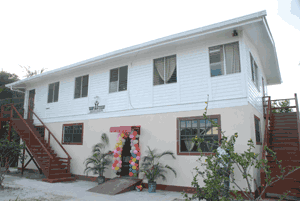 The focus, at the Regency Hotel on Hadfield Street, Georgetown, was on the Draft Strategy Framework for the collection of production data on non-traditional agricultural crops.
The focus, at the Regency Hotel on Hadfield Street, Georgetown, was on the Draft Strategy Framework for the collection of production data on non-traditional agricultural crops.In remarks at the opening, Minister of Agriculture Dr. Leslie Ramsammy said the initiative was a step towards developing a new norm for Guyana to become one of the few countries with a data collection system for crops and livestock.
He noted that most developing countries, including Guyana, presently, have poor data collection systems for traditional crops, adding that where there are it is new.
However, he said this exercise is aimed at accelerating development in Guyana and the consultation itself has dramatic meaning for the living standards of Guyanese.
Ramsammy pointed out that, while everyday crops used by Guyanese, such as bora and boulanger, are termed “non-traditional” by no means are they really non-traditional.
He said this concept has been promoted internationally to differentiate the “agricultural giants” rice and sugar and emphasised that the main mandate of agriculture in this country and around the world is to feed people and promote food and nutrition security.
VERY ESSENCE According to him, non-traditional crops are the very essence of food and nutrition security.
According to him, non-traditional crops are the very essence of food and nutrition security.
He therefore emphasised that, at the national and global level, a revolutionary tactic needs to be employed to place these crops in a category that deserves significance.
In addition, he disclosed that the Agriculture Ministry is working towards having an agriculture census taken in Guyana, which he hopes will be done periodically in the near future.
Minister Ramsammy acknowledged that it would be an expensive exercise but assured that it will advance the agriculture sector and the development of Guyana.
He explained that the agriculture census is not just to assess how much is being produced or for policy-making decisions, but for helping to develop a sanitary and phytosanitary standards (SPS) regime that will allow Guyana to become a major export country of crops outside of rice and sugar.
He said Guyana has always harboured the ambition of being the breadbasket of the Caribbean but concurred that, for this to become reality, it must become an export country.
In addition, he highlighted the importance for traceability systems to be in place.
“The implementation of traceability will go a far way to establishing a comprehensive quality data information system, because every farm that intends to place products in our markets locally and internationally will have to be registered and certified,” Dr Ramsammy explained.
However, he accepted that it will take time to implement these programmes, as people will have to be educated and made aware and the policies would have to be introduced in phases.
RIGID RECORDS
The Minister said he has requested that agro-processors procure their raw materials from farms that are registered and are maintaining rigid records of their produce.
He also disclosed that, in the 2013 Budget, almost $900M have been provided for the completion of a biology laboratory at the National Agricultural Research and Extension Institute (NAREI) and an animal health laboratory at the Guyana Livestock Development Authority (GLDA), to ensure that crops and livestock can be effectively tested for various pests and diseases.
Meantime, while fisheries and livestock are ahead in developing a data information system, they still have a far way to go, he admitted.
In addition, Ramsanmy said his ministry is also interested in developing an agriculture information system which will include the agro-processing industry.
Among those in attendance at the consultation were General Manager, Mr. Nizam Hassan and Senior Analyst, Ms. Natasha Beerjit, both of the new GMC; UNFAO Regional Statistician, Ms. Veronica Boero and an agricultural statistics expert, Mr. Frederick Baker.
Yesterday’s forum is being followed by a three-day training workshop on crop production data collection.



.jpg)








